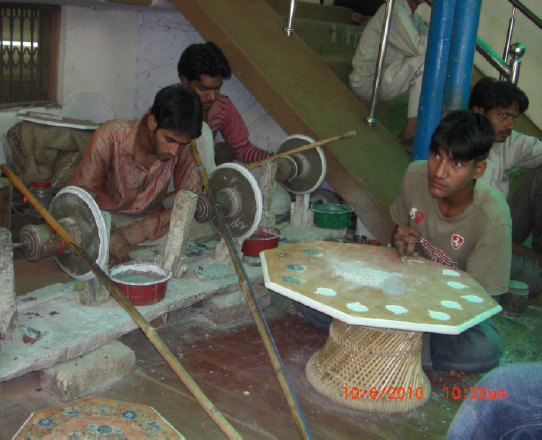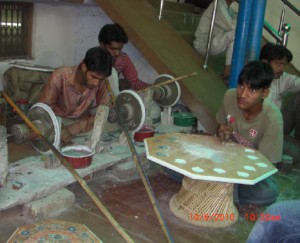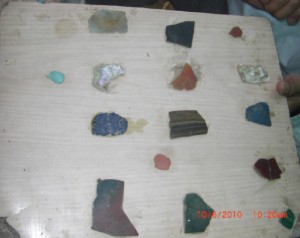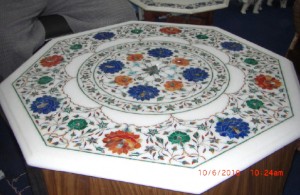Zainub Exports: Keeping India’s glory untarnished
In the book ‘What India can Teach us’, Max Muller defines two very different Indias – one is the India of today, of the cities and towns and the other

In the book ‘What India can Teach us’, Max Muller defines two very different Indias – one is the India of today, of the cities and towns and the other India, thousands of years old, is that of the village communities. As a foreign tourist in India, staying in five star hotelss and travelling by fancy cars, one is most likely to miss out on the second India, the truer of the two. Similarly, as a tourist in my own country, while I had often been to Agra to visit the Taj Mahal, what I did not realise was that I was missing out on a more humble, yet strikingly important part of our heritage. Located a few miles away from the glorious Taj, on the Fatehabad Road, are the marble factories of Agra. One among these is Zainub Exports.

Engaged in a wide range of marble inlay work, workers at the Zainub Exports unit are treated just like family. It is, after all, a family tradition, an invaluable inheritance from the Mughal ancestors. Ask Mr. M. Ajeed Shirazi, a sixteenth generation entrepreneur and he will point out how his family has been running these factories since Mughal times. I listen to his narration but my mind has wandered off to another era, an era when the great ruler Shah Jahan added a grand legacy of structures during his reign. What must it have been like? Mr. Shirazi tells me how precious and semi precious stones used for the Taj Mahal were imported from all over the world, even in the seventeenth century. How much wealth, power and prestige must the royal highness have commanded? Then, I look at the humble figure in front of me. If it weren’t for Mr. Shirazi and his family, I might never have discovered the intricacies of marble structures and how it links us to our glorious past.

As a twenty-first century citizen, even though I am spellbound by the work of the artisans, I can’t help but ask the obvious question. Is there any money in the marble business? Mr. Shirazi hesitates, “This year the business was hit because of the slowdown abroad. Otherwise, we have many foreign tourists and clients who buy our products abroad.” From our discussions, I gauge that the major problem is that of marble sellers in bigger cities. They sell lower quality products, bringing down the price. How can a genuine product compete unless customers can spot and care for the difference? Problems cloud over the horizon. Yet, the satisfaction from this work is unmatched. For Mr. Shirazi, the work represents a culture, a legacy, a history he cannot trample carelessly. He holds it dear. There are always opportunities of work elsewhere, but he chooses to keep the glory of India untarnished. In the process, he helps many workers, who know nothing but marble.

Take the case of thirty-two year old Mohammad Haneed, one of the workers. Born and brought up in Agra, Haneed joined this work right after high school. Zainub Exports is providing livelihood to many such artisans. They also have a place to train workers and thereafter employ them. I am surprised to see how much these workers know about different types of marbles. They repeatedly tell me that the blue stone is semi precious Lapis lazuli. I can hardly pronounce it right. What was the orange one, I ask for the fifth time. “The orange stone is carnelian. It’s the one that shines when you put a flashlight against it,” comes the answer. While I am filled with awe and pride to see this hardworking group of people, at the back of my head, all I can think of is trying to remember what these stones are called! Next time, I don’t want to feel like a tourist in my own country.
Zainub Exports:
Manufacture of Marble Inlay Work and Indian Handicrafts
Contact Details
Mailing Address:
18/160A, Fatehabad Road, Purani Mandi,
Tajganj, (opp. Kailash Talkies),
Agra-282001, Uttar Pradesh, INDIA
Contact No:
+919319127303
+919927860470
Email Ids:
[email protected]
[email protected]
www.zainubexport.com
This story made me
-
97
-
121
-
89
-
167











